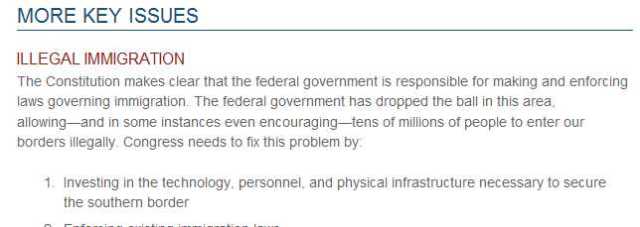Earlier I had written a blog titled “The Fall of the American Republic“, which had also been published on my own blog.
This is really just a response to a comment in in that post, but it ended up being long enough (me? long winded? never) that I thought it might be a good regular post. As such, there may be a couple references that allude to people or topics that seem a little random.
For context, I was more or less told that I think the people are stupid, and that I think we should have an Plutocratic oligarchy. My response:
I never said that the masses were slobbering fools who must be led by those who are better, and the reason why I didn’t is because I don’t believe so.
What I said was that we need to find the best amongst us to serve as our leaders, and that those leaders must rise above the desire to do whatever the people want simply because that’s what’s popular at the time.
Such an idea isn’t new, and it was one shared by many of the founders and framers of our nation and the Constitution.
The reason why originally only Representatives were selected by popular vote, with the Senate and President being picked vicariously through several layers of democratic process, was to try to insulate policy and our laws from fickle desires of the majority, and to try to ensure that those at the top were the best we had to offer.
Whether that worked out as intended then is as questionable as whether what remains of those systems works for that purpose now, but the reason for them remains.
As for “career politicians”, that’s a nice buzzword, but that’s all it is. Except at the very smallest of localities (and to a limited degree, the State), politics is a full time job because the business of running a community has full time needs that require attention.
Whether we are talking about the farmers who traveled for weeks to get to the capitol in the 1700′s or the Governor of a State in 2011, political office almost always requires a full time (or at least majority time) commitment. Part time politicians isn’t practical, nor has it ever existed at the levels I was addressing.
But I suspect that wasn’t what you were talking about, rather I would suspect you meant those who spend years in various offices and make it a “career”. Quite simply, raging against such is stupid.
I’m guessing that you’re one of the Hill’s associated with the Utah gun loving group, so I’ll try to draw a comparison: Suppose you opened a gun store and wanted to hire a gunsmith (you may be one yourself, but for the sake of argument, let’s assume you needed to hire someone else). Would you rather hire a master craftsman, with years working on various types of weapons, or someone who is eager and energetic but knows little beyond what they read in magazines and on the internet? My bet would be that you would take the one with tears of training and hands on experience.
Running a city, county, state, or nation isn’t easy, and balancing the many issues while at the same time dealing with other politicians involves just as much, and perhaps more, skill and attention as running any company. That’s why a prime criticism of Pres. Obama during the election was his lack of experience in administration, whether in the public or private sector.
Now, I’m not saying that just because someone is in office means they are smart, wise, or even particularly good at what they do. Sadly, many aren’t, and until we as a people require better out of our leaders than what we currently do, that won’t change.
Our founders and framers tried to build a system, full of checks and balances, not just between the levels and powers of government, but between the government and the people. They didn’t trust the people or government to make the best decisions, and so they built a system where the people check the government through collective wisdom manifested through democratic process, and where the leaders check popular but bad ideas through republicanism.
It is a return to that system, a system which I believe has been weakened over the last 100 years through various progressive (crap, getting closer to Glenn Beck than I like again) democratic reforms. These reforms didn’t make politics, and politicians, any more reflective of the good ideas and lasting values of the wisdom of the people, but rather made them more reflective of the hot button election cycle issues and arguments.
This, I feel, is a bad thing. Thus, the point of this article and my feelings on the matter, is that we would be best served by a system more similar to the one we had for our first 120 some-odd years of nationhood.

